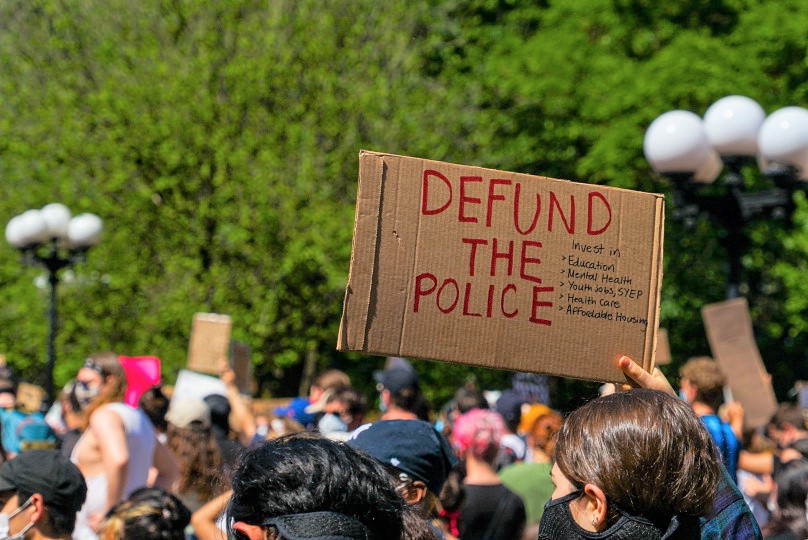Blog February 22, 2022
Crime, Policing, and the Racial Divide on the Left

In the wake of George Floyd’s death, “defund the police” became a rallying cry among many liberal activists. Even so, the movement never really caught on among the establishment wing of the Democratic party.
Certainly, rising crime had something to do with this: The FBI found that the murder rate increased roughly 30 percent between 2019 and 2020. Unsurprisingly, public opinion on crime shifted in response. The number of Americans who said that violent crime was a “very big problem” increased 20 percentage points in roughly the span of a year according to Pew Research Center. A lot of locally-elected Democrats who initially embraced the idea of defunding the police quickly back-tracked in the face of escalating lawlessness. Many political officials in left-leaning cities promised to protect law enforcement budgets or even increase them.
But another reason why defunding the police was not widely embraced by the Democratic Party is that some of the party’s most loyal voters were simply never sold on it, revealing a profound racial divide in the Democratic Party.
Recent surveys show that on a number of racial issues, white liberals do not align with Democratic-leaning Black and Hispanic voters. For instance, 71 percent of white liberals say they would support reducing police budgets and shifting funding to social services instead. But Black Americans are far more divided. About half (53 percent) of Black Americans express support for the policy, while 44 percent are opposed to it. And only 40 percent of Hispanic Americans support such a policy, while the majority (57 percent) are opposed.
One reason that cutting police budgets may not resonate with Black and Hispanic Americans is that these groups are much more concerned about crime. A new Pew poll found that 70 percent of Black Democrats and 56 percent of Hispanic Democrats believe reducing crime should be a top priority, but only 34 percent of white Democrats agree. In this case, personal experiences and community concerns may outweigh ideological commitments.
What’s more, concerns about crime help explain why Black and Hispanic Americans want greater police presence in their communities. As we noted in a recent report: “at least six in 10 Americans across different racial groups want more regular policing of their own communities.”
Finally, despite ongoing concerns about the treatment of Black Americans by police, there is a considerable feeling of goodwill towards and trust in local law enforcement. Notably, this is a feeling that cuts across race.
“When it comes to perceptions of local law enforcement, trust among Black Americans remains robust, albeit somewhat lower than among other groups. Fifty-seven percent of Black, 58 percent of Asian, and 64 percent of Hispanic Americans trust the police in their communities.”








